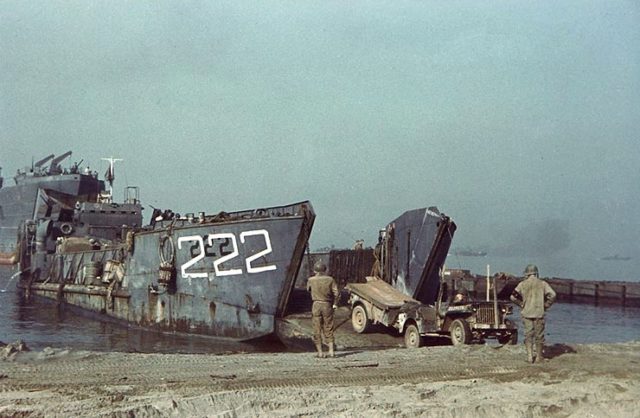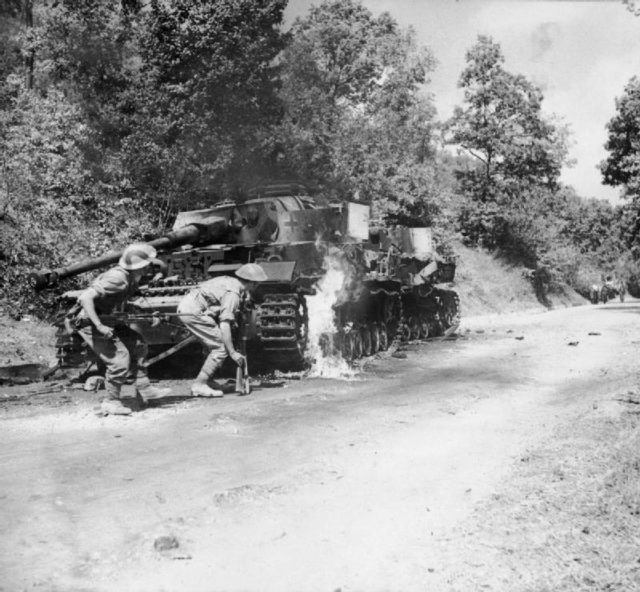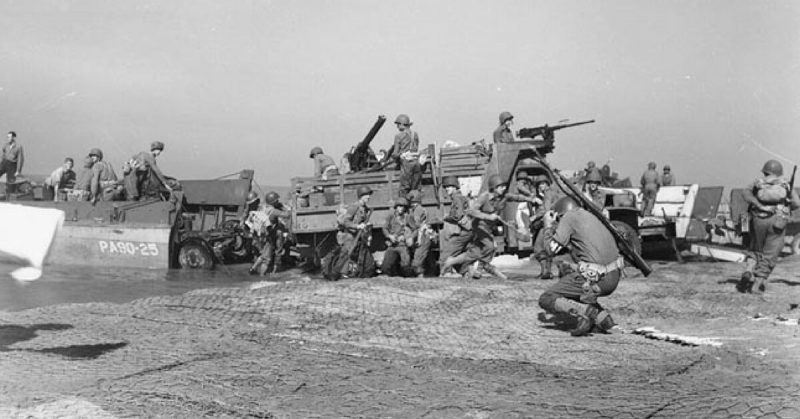The Allied invasion of Italy was one of the great reversals of WWII. It was followed by the failure of Nazi Germany’s attempts to put their agents behind the lines in Allied Italy.
Role Reversal
Following the invasion of France in 1940, the Allies were struggling to gather intelligence from behind German lines. Up until then, their efforts had gone into defending France, and there had been little preparation on how to continue if the country fell. Agents had not been set up to stay in France to provide military intelligence from inside the occupation.
Three years later, the roles were reversed. The Germans were ready to fight against an Allied invasion of Italy, but not for events if that invasion succeeded. When the Italian government then joined the Allies, the Nazis rushed to prepare operatives who could be left behind as they withdrew or who could cross the lines into Allied territory.
As the Allies had discovered, it took some time to do so well. With the war for Italy raging, time was one thing the Germans did not have. What followed was improvised and sometimes inept.
Shepherds
For thousands of years, shepherds have raised their flocks on the Italian highlands. They moved them with the seasons, seeking fresh pastures or better weather. Some German agents attempted to make the most of that opportunity. They obtained a flock of sheep and dressed up as shepherds. Then they tried to cross the border into Allied-occupied territory with their flock.

Heading Home
Some decided to use a simpler excuse; going home.
The war had left Italy divided, with families and friends separated by the front lines. Some agents claimed to be native Italians living on the other side of the war zone, trying to return home. It was a relatively easy guise to adopt – no need for a flock of sheep – and a single person could carry a lot of information.
Brothels
Brothels were a useful intelligence tool for both sides. They were places where people let down their guard. Criminal connections within the brothels made them useful sources of information and equipment. Many of the workers and clients had no scruples about betraying people for money.
One such case occurred at a brothel in Aquila, east of Rome. There, a prostitute named Nadia Bufarina betrayed escaped British prisoners and the peasants who helped them, selling them out to the Germans.
The tables were turned as the Allies moved north and Aquila came behind their lines. Nadia, who could have been a useful contact for the Germans, was betrayed by her colleague Gina who had been forced into prostitution by the Germans and was happy to impede their efforts.
Matching Equipment
It was not the only way in which German intelligence efforts were undermined.
Operative training schools were set up in Lombardy and Piedmont, to prepare agents for work in Allied occupied territory. In a rush to get intelligence assets on the ground, scores of volunteers were sent there to be trained and equipped.
Unfortunately, the people in charge provided their employees with standard issue equipment. The spies were sent behind enemy lines carrying identical revolvers and briefcases. The guns were hidden, they had to be, but the briefcases were not.
Once the Allies had captured some of these men, the cases became a giveaway. Anyone seen carrying one was immediately a suspect.
Allied Counter-Measures
Flawed as these efforts were, they represented a danger for the Allies. Successful intelligence gathering had immensely bolstered their own efforts. They could not let the enemy gain the same edge. They set up a three-layered system to identify and filter out German agents.
First, there were the Field Security sections. They worked between the front lines and the rear of an area controlled by the army. Each was allocated a sector to oversee and patrol, looking for suspicious travelers. They had the authority to set up roadblocks and detain anyone who did not have the right paperwork.

When the Field Security teams found a suspect they were passed to the next layer; the Counter-Intelligence (CI) units. CI officers interrogated the suspect enemy agents, looking for evidence to ascertain if they were German spies. The aim was not just to reveal and imprison them. Ideally, they wanted to turn them into double agents, reporting false information to the Germans, as the British had done with many spies at the start of the war.
The most intransigent prisoners were sent to the Combined Service Detailed Interrogation Centre, where interrogators sought to draw out whatever useful information they could.
A Costly Failure
Between German mistakes and rigorous Allied counter-intelligence, the German efforts were almost all failures. In one instance, all 15 students from a single agent training class were captured. A group photograph was taken to mark the fact they were all in prison.
Immediately after the end of the war, SS General Wolff, who had led Axis security troops in Italy, was interviewed by a British colonel. Wolff boasted he had had seven teams of secret agents in Allied Italy, all using radios to report on what they had learned. Then he was advised that every one of those teams had been found, turned, and sent false information back to him on behalf of the Allies.
A lot of effort had gone into getting agents across the lines. Ultimately, it ended in failure.
Source:
Ralph Bennett (1999), Behind the Battle: Intelligence in the War with Germany 1939-1945.
